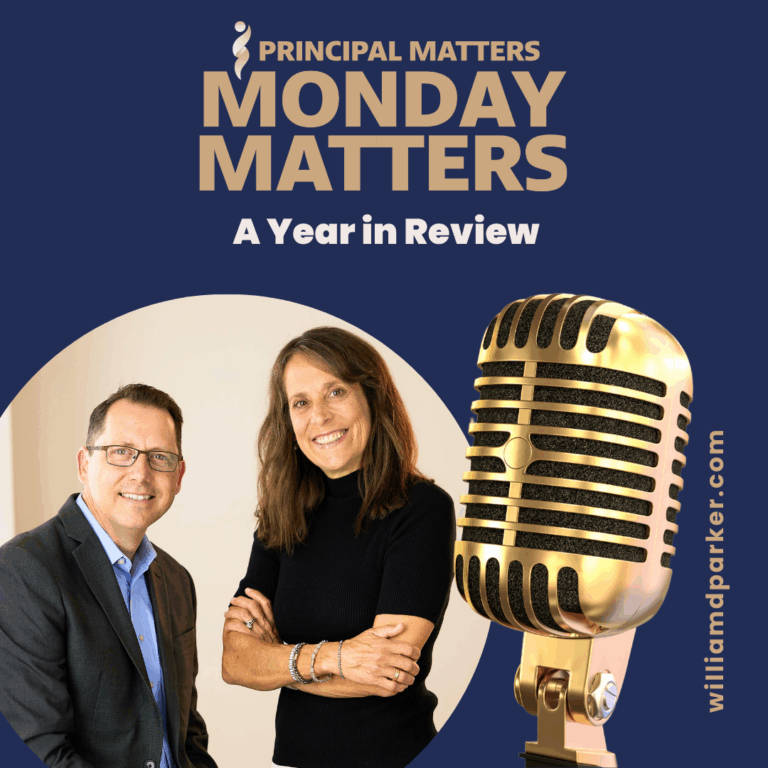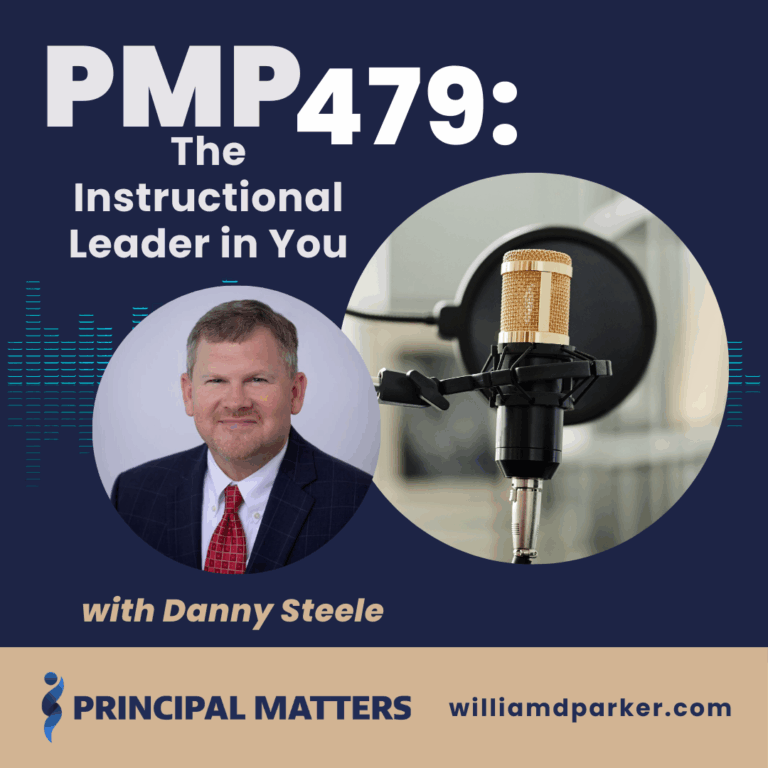Podcast: Play in new window | Download
This week Jen Schwanke joins me as we explore what happens when we lose focus on the important goals and outcomes involved in serving others.
Listen in for more context and takeaways as Jen and both reflect on what happens when leaders lose focus on the mission and vision of their service.
Below I’m also including a companion post with the story and lessons I shared with Jen about recently getting lost while hiking. I hope these lessons may help you consider the dangers of leaving the path in your own leadership!
The Dangers of Leaving the Path
by William D. Parker
Recently, I visited a school in southwestern Oklahoma. As I was staying the night near the Wichita Mountains National Refuge, I drove down early and into the park a couple of hours before sunset. There I found open expanses of prairie and small mountains. Buffalo and Longhorns grazed on both sides of the road. I found the way to Elk Mountain, parked and changed into my running clothes and shoes. I filled my water bladder and strapped it into my backpack, and I set my watch for 45 minutes – enough time to hike into a section of the Wichita Mountains and back before sunset.
As I jogged the gravel trail, I was captivated by the budding spring wildflowers – orange, purple, and white blossoms waving in the breeze. The grass was green and short, and the rock hills above me bright with the sunlight beaming on their broad shoulders.
When I had gone a couple of miles in, I realized it was time to turn around, but I saw a hilltop that I was sure I could summit in less than five minutes, and I wanted a better view from up high before heading back. When I reached the top, I realized I wasn’t far from another higher point that might give me a view of the entire area.
As I stepped by cacti and weaved my way up enormous boulders, I realized the higher level was blocked by a small section of woods. I stepped through a small opening and pushed my way through brush until I had reached the next level of rocks. Here I climbed up and over a series of large rock faces until I stood about a body’s length below the highest point. It was here I realized I couldn’t reach the top safely. There weren’t good hand holds in the rock, and I didn’t have any climbing gear. By this point, I had put my running gloves on as the granite rocks were rough like sandpaper in some places.
While I won’t go into detail here about the next hour and a half, I will say that this was one of the moments in my life I am the least proud to tell. After I turned to climb down, I realized how far away I was from the trail I had left. I also realized I had broken every hiking rule I had taught my own children: leaving the trail and not marking a way back; pushing beyond the time I knew it would take to return before dark; and finding myself alone with a water container that would soon be empty.
I scrambled down the hills, and I thought I was heading in the direction of the valley where I had left the trail. But every new level I descended only showed me unfamiliar grass, rocks and trees with no trail in sight. I checked my watch and glanced at the sun as it hovered above the horizon.
Finally, I finally found a ravine between rocky crags that led downhill in what became my new path. Along the way, there were small pools of water collecting in rocks, and I knew this was a natural waterway for run-offs of rain, probably going to the small river that ran by the area where I had parked the car. The sun behind the western hills was beginning to set and cast a yellow glow across the entire landscape.
The irony of this beautiful moment was not lost on me. The stunning panorama of naked rock, greening valleys, and glowing sky were stunning. But here I was alone, unsure exactly where I was and desperate to find my way down before it grew dark. When I crossed the next boundary of rock, I caught a glimpse of the valley below and could see a very distant lake I recognized. At least I hoped I was heading in the right direction.
Losing the Trail
I don’t know if you have ever been in a scenario where you’ve lost sight of the trail, but my guess is that every educator finds himself or herself walking into situations where you did not plan to go. Perhaps it is a student disciplinary situation you’ve never faced before. Or maybe a parent has called with an alert from social media that has you and your team scrambling for a response.
You may be stepping into a season of your school where the pressures of activities seem to have erased the other priorities you set for student achievement, professional development or other goals.
Or maybe, like my hiking story, you’ve lost sight of your leadership path because you have pushed ahead of where you had planned to go or allowed a good distraction to become a potentially fatal one.
I remember times when I was teaching Advanced Placement Language to high school juniors. We had objectives that included analyzing the writing style or persuasive technique of authors along with goals to improve students’ abilities to write essays that both critiqued and applied lessons learned from those same writings. Sometimes, however, we would become so embroiled in debating positions for or against the pieces they were analyzing that we lost focus on the process, and I found myself refereeing arguments more than instructing them in analysis.
It was at a point like this while teaching when I would stop a class and say, “Ok. Let’s remember why we are reading this piece. What is the author’s point? What language is he or she using to make the point? How can you recognize the rhetorical device he or she is using? What is the effect, positive or negative, of the message communicated?”
As a teacher, I was responsible to guide my students back onto the trail of learning.
As educators, sometimes you are asked to implement programs or mandates from districts, state or federal agencies that can appear burdensome or be a distraction from the goals you and your team may already be working on for student achievement. When this happens, you know your role involves complying in a way that burdens others as little as possible while still keeping your primary goals front and center. This is not easy, but it is important.
Too often we are distracted by the urgent while losing focus on the important. When that happens, it is time to pause, to reassess your position, and to find a way back on the right trail. If you don’t, the outcome could be exhaustion, burnout, or perhaps worse – losing others along the way..
Let’s Wrap This Up
By the time I found a trail again on my mountain hike, I had to jog my way back as dusk was settling in, and frankly I was a disaster. I had scratched my legs and arms on rocks and brambles. At one point along the way, I had stopped to pull a cactus needle that had wedged its way through into my left shoe. Standing in a place I didn’t recognize, blood and dirt on my knees and arms, my water gone — I wasn’t sure where my car was from this point, but I made my way along the gravel road until I came to the highway.
Thankfully, when I opened the map on my iPhone, I could see it had pinged my car from where I had last parked. It was 1.5 miles from where I stood, and now it was dark. With stars beginning to shine above me, I began a long hobbling jog and walk down the lonely highway. Of course, I remembered the buffalo, elk and longhorns that roamed this refuge. The yellow lines marked the center of the road like a solitary ribbon into darkness, and I pushed forward, listening for sounds, catching faraway yelps of coyotes, and tromping along thinking about how foolish I had been, and how much I wanted to be able to tell this story if I ever made it back to my car.
Maybe you’ve never been in a place where you’ve left the path as literally as I did in this story. But it is possible that in leadership you may be leaving the path without even realizing it. Here are some questions to keep in mind for reflection:
- When was the last time you revisited the mission and vision of your school?
- What practical steps are you currently taking to fulfill the goals you set for the school year?
- How are you and your teammates reflecting on your most important goals or outcomes to make sure you are keeping what is important central to your daily activities?
- In what ways can you re-adjust if you’ve gotten off the trail? Think about one step or action you can take today to reconnect with work you know will make the most impact for student learning.
Let’s Get Real
I want to finish this story with some transparency in case someone is reading this who needs a ‘let’s get real’ moment.
My father passed away last month. I was preparing for a presentation to a group of education leaders in Mississippi when my brother called with the news. Dad had lain down on the couch after dinner and said he didn’t feel well. My brother offered to take him to the hospital, but he said he’d rather “not go to a place that’s cold where they hook you up to a bunch of tubes.”
They called 911 for an ambulance instead. By the time the emergency responders arrived, Dad had said goodbye to Mom and my brother. His last words were, “I love you too.”
I finished my trip to Mississippi and rerouted my return home through Nashville to spend the next week in West Tennessee with my family. My wife and kids drove in from Oklahoma, and all my siblings, 15 grandchildren, 5 great-grandkids, spouses, cousins, and friends joined us for the funeral.
We have a tradition in our family at burials. After the last hymn is sung and prayer is said, we take turns with the shovel placing dirt on the coffin of the deceased. I can’t remember how the tradition began, but over the years, it has given each of us the opportunity to add one more moment to the reality of saying goodbye. It seems such a gentler way to cover the grave with hands that loved the person being laid to rest..
Coming back to ‘life as normal’ afterward my dad’s funeral has been much harder than I expected. I’ve had friends tell me losing a parent is hard, but I didn’t expect the emptiness I have felt. I have very few regrets in my relationship with my dad. We were close and loving. But it is odd knowing he’s not there – the rock who was always there from my earliest memories.
The last couple of weeks I’ve found myself outside a lot. I like to jog and bike, and the spring weather has been filling the days with sunlight and greening trees. So I’ve been loading my bike and riding the river trails near Tulsa or into Osage County. The miles of road, the sweat and sore muscles – these workouts have been ways I’ve coped with stress or anxiety over the years.
When I returned home from my hiking trip and found the courage to tell my wife about my mishaps, she was upset that I had placed myself in danger. She was also kind enough to recognize my embarrassment and desire to commit to safer behavior in my future adventures. As we talked, I realized something else then that I hadn’t before. In the past when I have faced really stressful times, I have increased my exercise as a way to manage or release anxiety. Since my dad’s death, I have really picked up the pace. In some ways, I think I was trying to outrun the grief.
While my wife and I talked, I admitted this to her. And for the first time since my dad’s death, I had a hard cry. I’m not telling that story here to gain sympathy or evoke emotion. Instead, I want to leave you with a final point:
All of us face a lot of difficult moments, including ones of deep grief in the situations you manage with others. Sometimes those moments leave you emotionally rattled or even hurt. You may not realize that these moments can also push you off the path of what’s important. Or they may also serve to point you back to what matters most: relationships.
Either way, give yourself and others the grace to know that the work of education is hard. At the end of the day, we are all human, and it is in trusting relationships with others that we can find the strength and perspective to gain our footing again.
Now It’s Your Turn
As you take a look at the road in front of you, are you still on the path that will help you reach the best outcomes? If you feel rattled, distracted or off-target, do you have someone else in your circle of accountability you can reflect with? Give yourself permission to assess where you are and take one step today in the direction you know will lead to the best outcomes.




